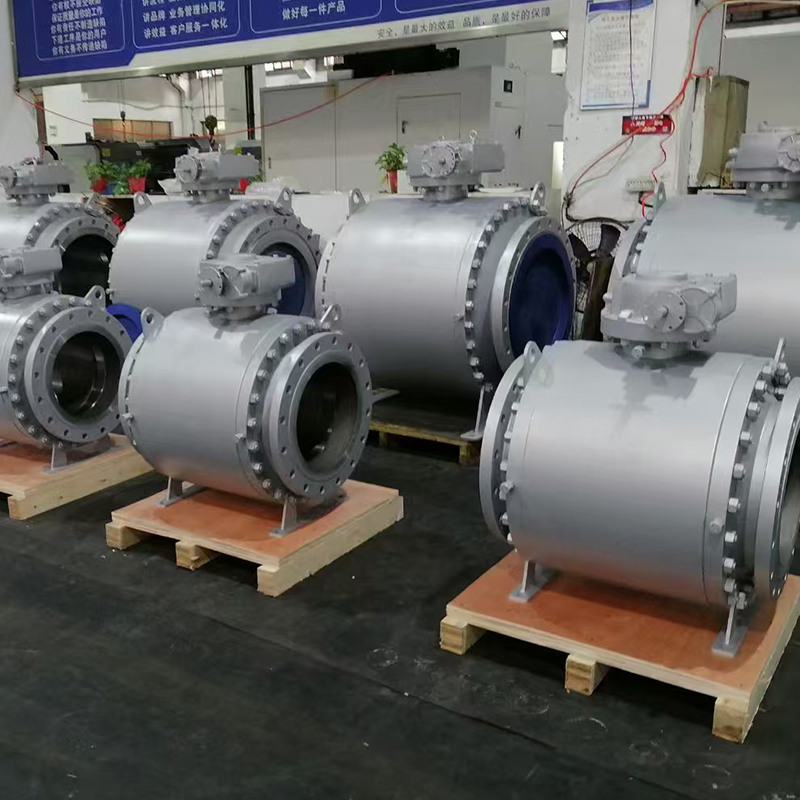

Valves are crucial components in a wide range of industrial systems, from water treatment plants to oil and gas pipelines. They control the flow of liquids and gases, ensuring that systems run efficiently and safely. For many businesses, valves help reduce maintenance costs by preventing wear and tear, minimizing leaks, and extending the lifespan of equipment. A floating ball valve manufacturer, for example, produces valves designed to be durable, reliable, and cost-effective, all of which contribute to reducing long-term maintenance expenses. But how exactly do valves reduce maintenance costs in various systems?
1. Preventing Unnecessary Wear and Tear
One of the primary ways valves reduce maintenance costs is by minimizing the wear and tear on the system's components. In any industrial system, components like pipes, pumps, and tanks are subject to pressure and fluid flow fluctuations, which can lead to premature failure if not properly controlled. Valves, such as those from a floating ball valve manufacturer, regulate the flow of fluids to maintain stable pressure levels. By controlling the pressure and flow, valves prevent unnecessary stress on other system components, reducing the risk of premature breakdowns that would otherwise lead to expensive repairs or replacements.
2. Reducing the Risk of Leaks and Failures
Leaks and system failures are not only costly but can also be dangerous. They may result in material losses, environmental damage, or even safety hazards. Valves are designed to create secure seals that prevent leakage when closed. Floating ball valves, for instance, use a ball mechanism that floats and seals tightly against the valve seat, preventing leaks even in high-pressure environments. A floating ball valve manufacturer carefully designs these valves to withstand fluctuations in pressure and temperature, ensuring that the system remains sealed and operational. By preventing leaks and failures, valves eliminate the need for costly cleanup, repair, or replacement work, significantly lowering maintenance costs.
3. Extending the Lifespan of Equipment
Valves also help extend the lifespan of the entire system. Properly functioning valves regulate the flow of materials, ensuring that the system operates within its designed parameters. This reduces the strain on pumps, pipes, and other equipment, preventing excessive wear and tear. For example, in water treatment plants, valves help maintain consistent water pressure, preventing pumps from overworking or becoming clogged with debris. By extending the lifespan of the system's components, valves reduce the frequency of replacements and the costs associated with them. Products from a floating ball valve manufacturer are designed to be durable and long-lasting, contributing to overall system reliability.
4. Reducing Energy Consumption
Energy efficiency is another area where valves play a key role in reducing operational costs. In systems where fluids are being pumped or transported, energy consumption can be significant. Valves regulate flow rates, which helps prevent the system from working harder than necessary. For instance, by controlling the flow of liquid through pipes, valves ensure that pumps and motors don't consume more energy than needed. A well-functioning valve reduces the workload on the system, saving energy and, in turn, reducing utility bills. By ensuring efficient flow management, valves play a direct role in lowering energy-related maintenance costs.
5. Easy Maintenance and Service
Another important benefit of valves is that many are designed to be easy to maintain and service. Floating ball valves, for example, are often designed with simple mechanisms that allow for quick inspections, cleaning, and adjustments. Some models even feature built-in indicators or monitoring systems that alert maintenance teams to potential issues before they become serious problems. Because these valves are easy to maintain, service times are shorter, reducing labor costs and minimizing downtime.
Valves, including those produced by a floating ball valve manufacturer, play a critical role in reducing maintenance costs across various industries. By preventing wear and tear, reducing the risk of leaks and failures, extending the lifespan of equipment, improving energy efficiency, and simplifying maintenance tasks, valves contribute to more cost-effective operations. Investing in high-quality valves ensures that systems remain reliable and efficient, ultimately saving businesses money in the long run.

